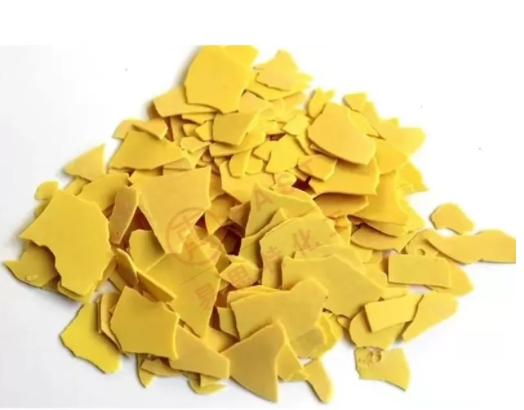Sodium sulfide, a chemical compound with the formula Na2S, might not be a household name, but its significance resonates through various industries and applications. This unassuming compound, composed of sodium (Na) and sulfur (S), possesses a wide array of uses that range from industrial processes to everyday products. Its versatility and unique properties have earned it a pivotal role in various sectors, shaping the modern world in ways we might not even realize.

1. Leather Industry:
One of the primary applications of sodium sulfide lies in the leather industry. Leather production involves a series of processes, including the removal of hair and the degradation of protein structures in hides and skins. Sodium sulfide serves as a crucial agent in these procedures, aiding in hair removal by breaking down keratin, the protein that constitutes hair. Its role in deliming and bating, which are steps in leather processing, contributes to producing supple and high-quality leather goods.
2. Paper Pulp Production:
The paper manufacturing industry relies on sodium sulfide for the delignification process, where lignin, a natural polymer responsible for binding fibers together, is removed from wood pulp. Sodium sulfide helps break down the lignin, separating it from the cellulose fibers. This step is essential for obtaining pulp that can be efficiently transformed into paper.
3. Mining Industry:
In the mining sector, sodium sulfide finds applications in ore flotation. Ore flotation is a process that separates valuable minerals from gangue, the unwanted material surrounding the ore. Sodium sulfide acts as a depressant, preventing certain minerals from floating and thus aiding in the separation process. Its role in mining underscores its significance in resource extraction.
4. Chemical Manufacturing:
Sodium sulfide is a building block in the chemical industry, serving as a precursor for the production of other chemicals. It's a key component in the synthesis of various organic sulfur compounds, including sodium hydrosulfide, thioacetamide, and sodium polysulfide. These compounds have applications in diverse fields like pharmaceuticals, agriculture, and even in analytical chemistry.
5. Water Treatment:
In water treatment processes, sodium sulfide plays a role in removing heavy metals like lead, cadmium, and mercury from wastewater. It reacts with these metals to form insoluble metal sulfides that can be easily removed through precipitation. This application is critical for ensuring safe and clean water supplies, protecting both human health and the environment.
6. Textile Industry:
The textile industry benefits from sodium sulfide in the production of dyes and pigments. It's used in dyeing processes to assist in the fixation of color onto fibers, enhancing colorfastness. Additionally, sodium sulfide is used to reduce certain dye compounds, making them suitable for use in textiles.
7. Photography:
In the realm of photography, sodium sulfide finds its place in photographic developers. Developers are chemical solutions used to convert latent images on photographic film or paper into visible images. Sodium sulfide is utilized as a reducing agent in some photographic developers, helping bring out the captured images.
8. Oil Refining:
Sodium sulfide's desulfurizing properties make it valuable in oil refining. Crude oil often contains sulfur compounds that need to be removed to meet environmental regulations and enhance the quality of refined products. Sodium sulfide assists in removing these sulfur compounds through various refining processes.
9. Biological Research:
Sodium sulfide also has applications in biological research. It's used as a reagent in studies involving hydrogen sulfide (H2S), a gasotransmitter with diverse physiological effects. Researchers use sodium sulfide to generate controlled amounts of H2S for investigating its roles in various cellular processes and disease conditions.
10. Inorganic Chemistry:
In the realm of inorganic chemistry, sodium sulfide is employed as a source of sulfide ions (S2-) in various reactions. Sulfide ions are versatile ligands that can form complexes with metal ions, contributing to the synthesis of a wide range of coordination compounds with diverse properties and applications.
In conclusion, sodium sulfide's multifaceted applications span industries and scientific fields, shaping processes and products that touch our lives daily. Its pivotal role in industries such as leather, paper, mining, and water treatment highlights its significance in various manufacturing and environmental processes. From aiding in the creation of high-quality leather goods to enabling cleaner water supplies, sodium sulfide's versatility and unique properties are indispensable.
As technology and research continue to advance, the applications of sodium sulfide might even expand, uncovering new uses and innovations that harness its potential. This unassuming compound, often overlooked, stands as a testament to the intricate connections between chemistry, industry, and our everyday lives.
other related news:
https://www.cneastchem.com/news/what-is-soda-ash-used-for.html
https://www.cneastchem.com/news/is-sodium-carbonate-same-as-baking-soda.html
https://www.cneastchem.com/news/how-do-you-use-caustic-soda-flakes-for-cleaning.html





Comments
0